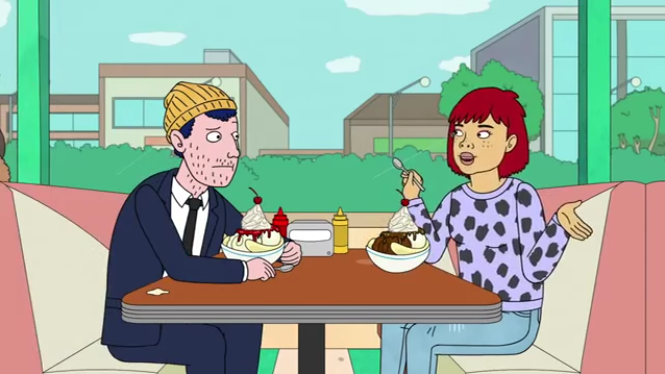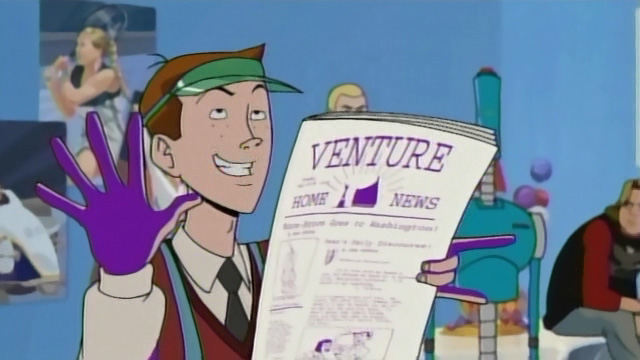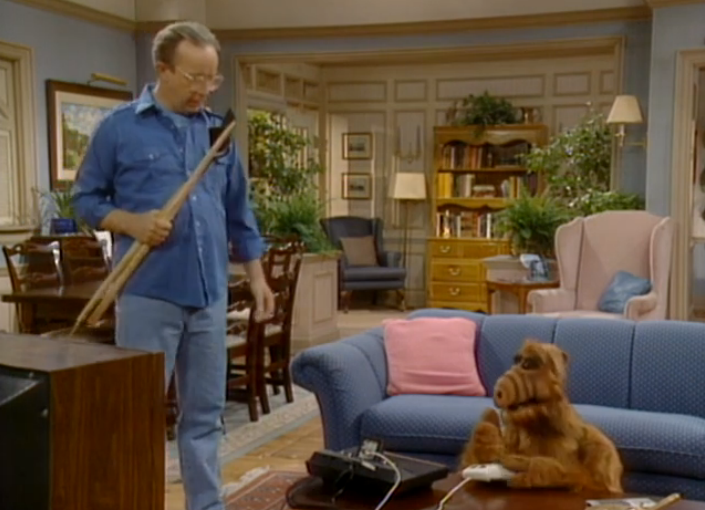As I said last year, I don’t usually do an annual best-of games list because I don’t usually play many games close to their release. Once again this year, though, I did, and what I played felt like it was absolutely worth spotlighting.
So here we are again, yes, but I have the same problem I had last time: I want to include games that I missed out on the previous year. Games that would have made my list had I gotten around to them.
I’m still not quite sure of the best format to use for something like this, so I’m just going to stick three 2017 highlights in their own list, and then move on to my favorite 10 from 2018. My only real rule is that remakes/remasters don’t qualify…even though this year saw a mountain of truly great ones. Shenmue I & II, Spyro Reignited Trilogy, Lumines Remastered, Katamari Damacy Reroll, and a bunch more.
The probably obvious caveat here is that I haven’t played every game this year, including some high-profile ones that, to be honest, I’d probably love. No Spider-Man, no Red Dead Redemption 2, no Hitman 2…I’ll get to them, but not in the last week or so of the year.
My best games of 2018 (2017 edition)
3) Prey
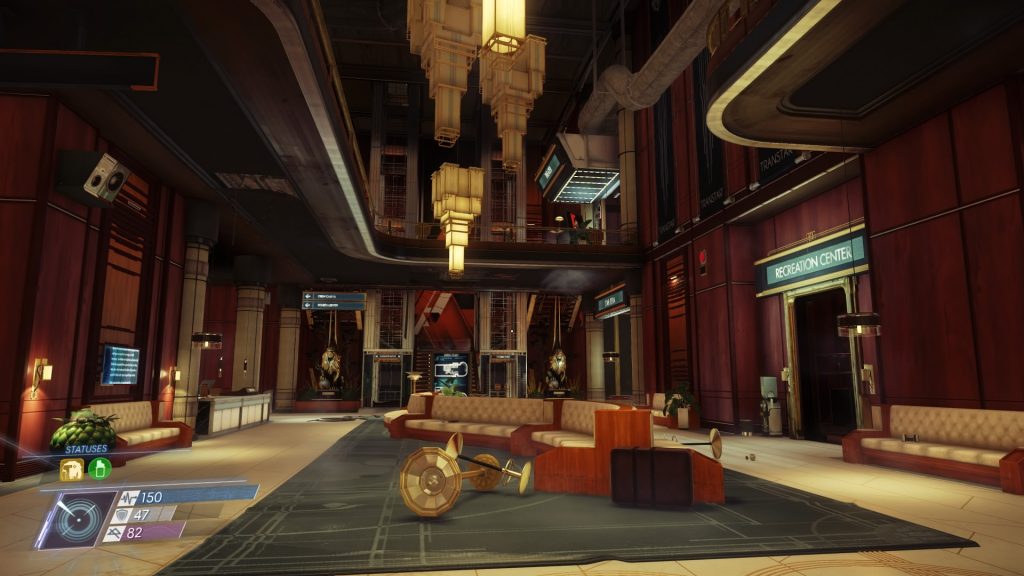
Prey is honestly the game that made me want to reach back into 2017 and spotlight it…and, obviously, it didn’t even end up being the best game I overlooked that year, which says something.
This was a massively pleasant surprise. I didn’t get around to it initially because the reviews were middling and I figured I’d wait for a sale. I regret that, because I wish I could have shown my support to the game with a full-price purchase.
Prey is difficult to discuss without spoiling some of its magic, suffice it to say it’s a sci-fi horror adventure that takes place on the space station Talos I in the immediate aftermath of horrific tragedy.
You are Morgan Yu, and your goal is…well, that’s your call. You can try to salvage what you can of the research that went wrong. You can try to escape and never look back. You can sacrifice Talos I — and yourself — to prevent the still-unfolding catastrophe from reaching Earth.
I’d be overselling the game to say there’s limitless freedom, because there certainly is not, but Prey is impressively versatile in ways so passive and quiet that a good deal of reviewers overlooked them. I remember one sequence midway through the game during which I really wanted some supplies behind a crate that was too heavy to move. Strength upgrades were available to me, but I had passed them up in favor of other things that I thought would be more useful. I couldn’t get to the goodies I wanted.
For whatever reason, I decided to fire my weapon at the crate…and it moved, just enough to make me realize I could blast it out of the way with enough firepower. And that was the moment Prey revealed itself to me. It’s not a matter of killing or avoiding an enemy…you can repair a turret to kill it for you, or hack a terminal to lock them in a room, or scale a wall to avoid them entirely, or or or or or. I returned to earlier areas of Talos I that I thought would be inaccessible until I found the right abilities, only to find that, actually, I just had to learn how to use the abilities I already had. Nearly every “lock” in the game is one you already have a key for, if you know what you’re doing.
Additionally, Prey has some of the best sidequests I’ve ever encountered, which surprised me considering the fact that just about every character is a torn, burnt, disfigured corpse on the floor somewhere. Reading two halves of email conversations, finding notes, listening to recordings…nothing about Prey‘s execution in this area is groundbreaking, but the writing is phenomenal. You learn about games the crew members invented and played to stave off boredom. You uncover a secret love affair that’s genuinely touching. You follow the stories of colleagues who knew something was awry but were silenced, one way or another, before they could speak up.
Prey is far better than it was given credit for being upon release, and if you skipped it, you really should pick it up sometime. Come for the scary monsters. Stay for the fragile humanity.
2) What Remains of Edith Finch
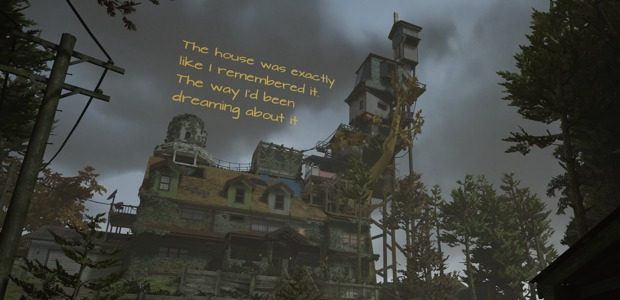
What Remains of Edith Finch is a dramatic masterpiece, not just within the medium but in general. I have never, in my entire life, been moved so deeply and so unforgettably by a video game.
The game is a walking simulator, to use that needlessly disparaging term, but it’s one that any fan of narrative, of characterization, of family dynamics, of simple storytelling truly needs to experience. There are important lessons here, for readers and for writers alike.
I’m being purposefully vague, so please don’t correct me in the comments, but you play as Edith Finch, who returns to her childhood home with adult eyes. The things she assumed were part of the standard childhood experience are revealed to her now as something quite different, and we piece together along with her the tragic history of the Finch family. Her family. Our family.
By exploring their old bedrooms, each of which has been sealed up and preserved like a shrine to the Finch who once occupied it, we learn about who these people were. And then we take control of them, one at a time, to live out their final moments. By the time we leave one room and move on to the next, we’ve genuinely gotten to know somebody. Somebody who…well, somebody who is already gone, leaving behind the clutter of who they used to be in a house that nobody will ever clear out. Their rooms are frozen in time, but time itself refuses to freeze.
Some of these vignettes are sad. Some are funny. Most are both. What Remains of Edith Finch is a series of emotional gutpunches that assemble into a profound statement about identity, about destiny, about personal growth. Every one of them matters. In an industry that loves to celebrate its own games for lasting hundreds upon hundreds of hours, What Remains of Edith Finch is a brief experience built of brief experiences. It gives you what it gives you, and then it moves on. Like each of the Finches themselves, it doesn’t stick around long. Just long enough that you’ll miss it when it’s gone.
I’ve liked a lot of video game characters. I’ve laughed with them and been afraid with them and I’ve helped them along. Then I eject the disc or the cartridge and get on with my life.
In sharp, painful contrast, I spent a part of my life with Edith Finch. I got to know her better than I think I will ever know most people. I cared about her. She mattered to me without me even realizing it.
You know.
Until it was over.
1) Nier: Automata
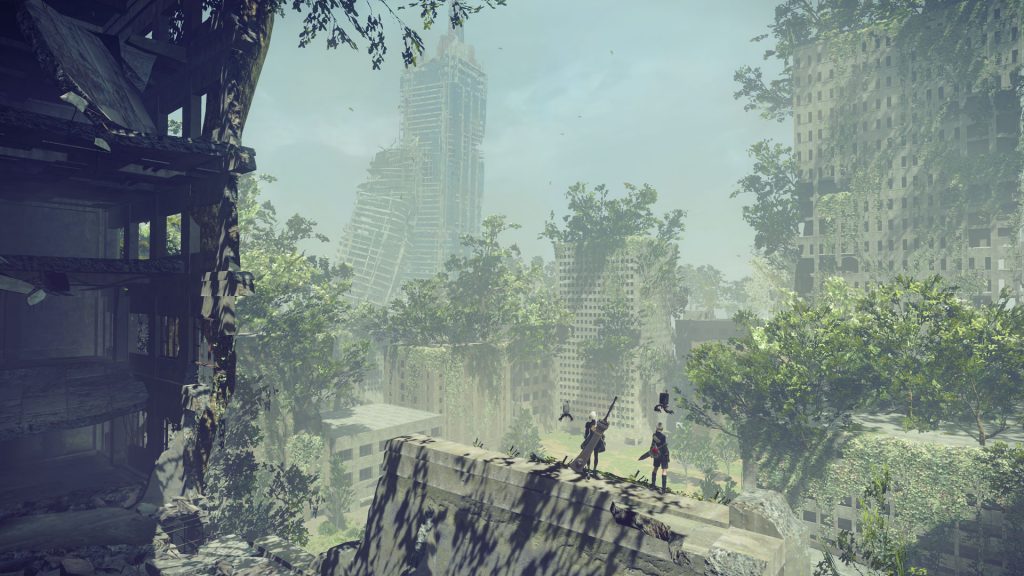
I’d be hard pressed to think of many years in which Nier: Automata would have had to fight very hard for the top spot. Not only was it one of the best-made games I’ve ever played, it was one of the most impressive.
There are games that play well, that look good, that sound great, that have intriguing stories, that have memorable characters…and then there are games that do all of these things, with each element of the experience working so perfectly in tandem, that it feels like it crossed over from another dimension in which they make games far better than we do.
Nier: Automata is one of those rare glimpses into another world, and I am privileged simply for being here to experience it. The soundtrack alone feels like something so beautiful we have no right to even come near it.
The story centers on a war between machines, with players taking control of the humanlike 2B in her battle against far less advanced, more obviously robotic enemies. At least, that’s how the first run of the game goes. The second time through, you play as 2B’s companion, 9S, experiencing the same story from a different perspective, filling in some narrative gaps, answering questions, raising a few more…
And then there’s the third time through, which I won’t spoil, but I will say that this time you play through a sequel story with a decidedly schizophrenic approach that both sheds light on and complicates both halves of the previous story.
Yes, Nier: Automata requires three playthroughs to even truly experience, but it rarely drags. The player-controlled characters all handle differently, and while 2B is damned good at bruising her way through hordes of enemies, 9S is far weaker and relies on his hacking ability, which takes the form of a shoot-’em-up minigame. You may play through the same story twice, but everything about it is different, simply by virtue of experiencing it through a different set of eyes. And this is triply true for the third run…
It’s impossible to say much about the game without spoiling some of its many surprises, but I will say that if you think you know the twist, that’s okay; you don’t. A number of reviewers — most infamously Yahtzee, who seems to play games just long enough to find something to complain about and nowhere near long enough to realize the game addresses his complaint — patted themselves on the back for guessing what they referred to as the “twist.” Play it yourself, though, and you’ll realize that that’s not a twist at all…it’s merely a plot point, and the story is far larger, more urgent, more compelling, more important than any singular reveal could ever account for.
The twist is what happens inside, to you, as you guide one group of robots against another, and learn more about human nature in the process than any video game should be able to teach us.
Buy it. Play it. Nier: Automata is a fucking masterpiece.
My 10 best games of 2018
10) Super Smash Bros. Ultimate
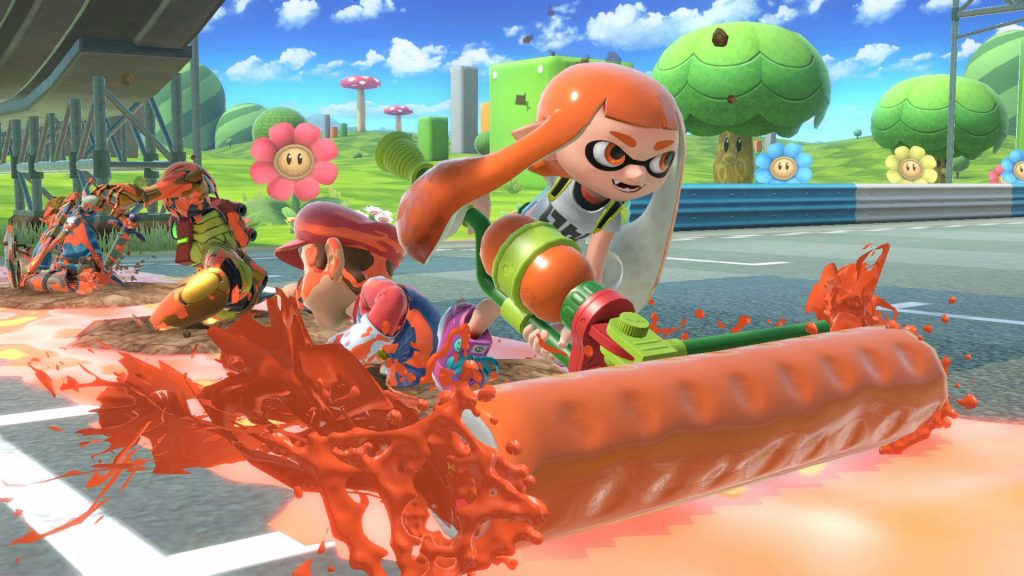
I was in a very small minority that believed the original Super Smash Bros. for the Nintendo 64 was the best in the series, which I believed right up until the Wii U and 3DS versions came out.
Super Smash Bros. Melee and Super Smash Bros. Brawl definitely made the series more interesting for serious competitors, but I wasn’t one of those. I’m still not. I never will be. The appeal of a series in which Kirby swallows Mario whole while Samus shoots at them and Link hurls bombs all around is its sheer fun factor, at least for me. That’s also why I don’t care at all about the rubber-banding in Mario Kart games. These things should be chaotic, beyond the point of fairness, because that’s what makes them fun.
Melee felt bigger, but was less interesting. Brawl felt like it tried to introduce some fun things (such as Assist Trophies and Smash Balls) that were far more annoying than they were probably meant to be.
Course correction came with the Wii U and 3DS games, and Super Smash Bros. Ultimate manages to please both the silly and serious fans in seemingly equal measure…something I honestly would have thought was impossible.
Its default settings thrust me right back into exquisite chaos, and anyone who doesn’t like that can tweak any setting imaginable to better suit their desires…and then, brilliantly, save a variety of these settings for easy switching depending upon who you’re playing with.
It’s easily the best game of the series, and while I may have ranked it higher if I’d spent more time with it (it’s only a couple of weeks old as I write this), I probably wouldn’t have as a result of its appallingly poor online performance. It’s better than Brawl in the sense that one might theoretically be able to play a match online, but it’s far laggier and less reliable than the Wii U and 3DS entries. I have no clue how or why it took such a large step backward in that regard, but it is definitely unfortunate, because every other element of Super Smash Bros. Ultimate is perfect.
9) Bleed 2
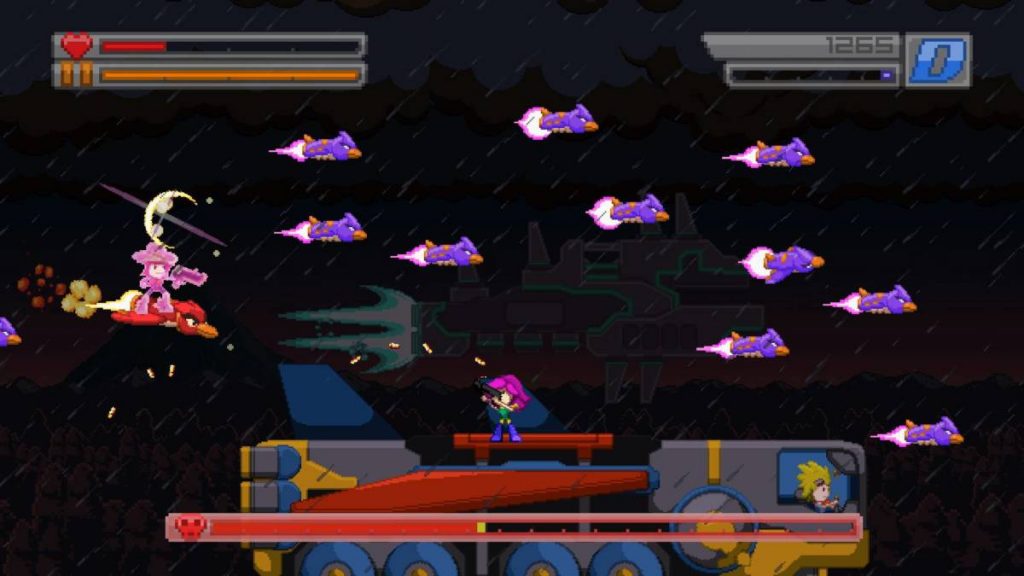
Bleed is a game I missed as it was an Xbox exclusive, but I grabbed it in a sale last year when it came to PS4. Since then I repurchased it on my Switch, just to support the developer (…well, and for the portabilty, because the game is perfectly suited to portability). It was a smooth platformer/shooter that wore its brevity and simplicity on its sleeve, and I found myself doing what I rarely have time to do anymore: replaying it over and over again.
Bleed 2 was an easy purchase when that came out this year. It seemed like it would be little more than another set of Bleed levels and, minor tweaks aside, that’s exactly what it is. And that’s all I wanted.
You take control of Wryn, a girl with an exceptional command of both firearms and aerial acrobatics. The plot is barely an afterthought; it’s the gameplay that’s front and center. And though Wryn’s movement at first feels floaty and imprecise, it honestly doesn’t take long to master. And I can say that, because I am absolutely terrible at most shooters.
With the ability to launch Wryn multiple times (in multiple directions) during a single jump and the ability to slow time on command, playing Bleed 2 is an elegant dance of graceful brutality. Bullets and obstacles and enemies come from all angles, and you’ll have to learn how to snake around, over, behind each of them in the blink of an eye. Speaking of which, blink a few times before you start playing, because you won’t be able to during the game.
That may sound intimidating, but Bleed 2, like its predecessor, welcomes all comers. It’s exactly as difficult as you’d like to make it, and there’s no shame in playing through each level a few times on the easiest, most forgiving setting. In fact, that’s probably a pretty smart approach. Once you have a handle on what to expect, you can crank the difficulty up as many notches as you like and really test your abilities.
The entire game can be blitzed through in just a few minutes, and you’ll have fun for that time. But replaying levels at higher difficulties, squeezing off tricky shots while deflecting projectiles and weaving through swarms of enemies, feeling your heart speed up to keep pace with the pounding soundtrack…it becomes transcendent.
Bleed 2, again like its predecessor, provides some of the best arcade-style action out there. It’s no walk in the park, but it’s willing to teach you how to play it in the most rewarding way. And that’s worth learning.
8) Dead Cells
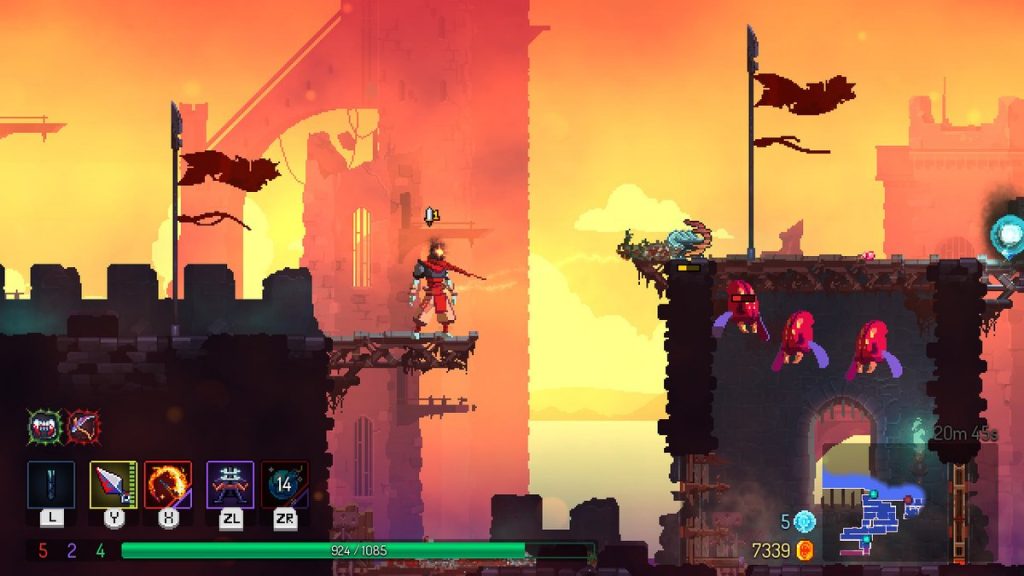
I want so much to love Dead Cells, but instead I have to settle for merely liking it quite a lot.
I think the game reaches a bit further than it really should, and the seams show too clearly as a result. It wants to be a procedurally generated metroidvania, which sounds like a great concept, but the limits on its procedural generation means you can’t backtrack to explore previous areas with your new tools, stripping it of the defining trait of metroidvanias. Instead, it’s just a roguelite with permanent upgrades, no more metroidvania than Rogue Legacy or Spelunky.
Dead Cells took two incompatible genres and tried so hard to make them work together that it’s frustrating to see how far short it falls of its own goal. What it does offer, though, is quite good.
It’s brutally hard, which is to be expected, but almost always rewardingly so. The nature of procedural generation means there are certainly times during which you’ll end up swarmed by powerful monsters and have very little chance of getting out alive, but it also means that other runs will hand you incredible weapons and items out of the gate, meaning you’ll barely struggle until the late stages of the game.
And that’s part of the fun. You get squashed like an ant; you squash everything else like an ant. The invisible hand of fate casts the dice, and while you aren’t told where they land you’ll sure as hell figure it out.
It’s a compelling gameplay loop. You find some items and gold, and you get the shit kicked out of you. You come back to find more items and gold, and you get the shit kicked out of you. But each time, you become just a little better equipped, and you’ll make it reliably further. It’s not a unique formula, but Dead Cells handles it well. Many was the time I sat down for a single run or two through the game and ended up playing for more than an hour.
The game’s main problem is that it doesn’t realize what it already has. It doesn’t need to inelegantly cram two genres together when there’s a single genre it does quite well. It doesn’t need to be constantly winking at the fourth wall and throwing cutesy meta jokes at the player, because it has an affecting, brooding atmosphere that should carry the experience instead.
Dead Cells doesn’t understand its own attributes, but even the lumpy, unrefined game we got is much better than most other developers manage throughout their entire careers.
I just wish, to paraphrase a Frank Zappa album title, it would shut up and play its guitar.
7) The Messenger
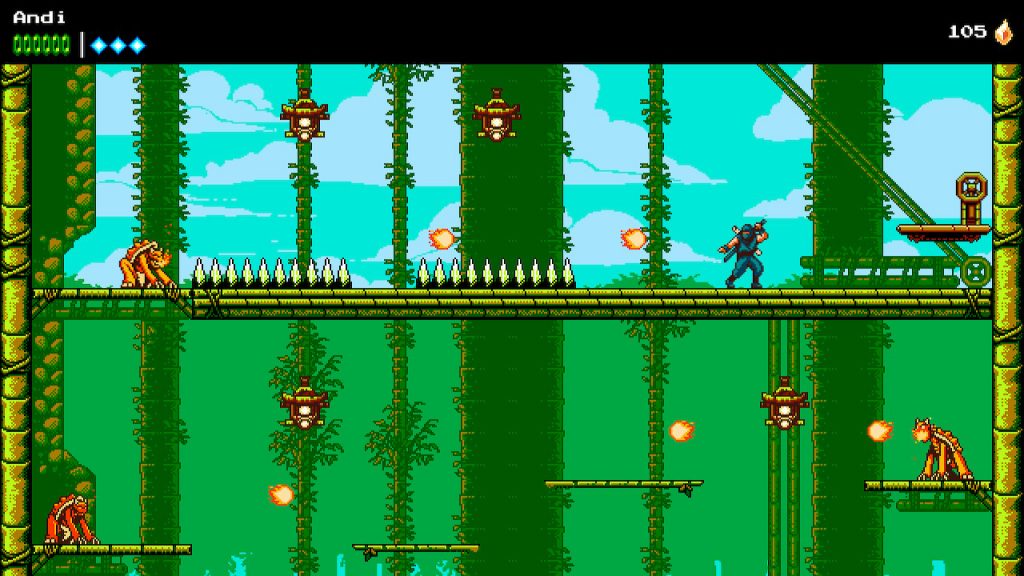
When games look back to the NES era for inspiration, they tend to focus on Mario titles, Zelda titles, or, more rarely, Mega Man titles. That’s okay; it’s a testament to the quality of those games that they serve as enduring inspirations decades later. The Messenger, though, finds its inspiration in Ninja Gaiden, a notoriously difficult action platformer that was among the most addictive and compelling on the console.
The Messenger is essentially a spiritual fan update, tightening the level design, eliminating the outright unfair moments, and turning Ninja Gaiden into the smoother experience it always should have been, an engaging and simple adventure from point A to point B, with a direct emphasis on moment-to-moment combat.
At least, that’s what The Messenger is at first.
Before long, the game reveals itself as something else entirely. You earn the ability to return to previous stages with your more recent upgrades, finding longer, more interesting paths than anything you’ve seen before. You find portals that allow you to travel back and forth in time, giving the game a new visual style, a remixed soundtrack, and clever puzzles requiring an understanding of what a certain section of stage looks like in two timeframes at once. You are given quests by NPCs in areas you previously blew through in a whirl of steel.
The Messenger is a game full of surprises, and while the narrative ones weren’t always great, the gameplay ones certainly were. The time-hopping mechanic is possibly the best implementation of such an idea I’ve ever seen, with the sly pun of console generations representing the leap in actual, human generations.
There are also multiple ways of solving problems. A few times I found myself at the end of a puzzle without having used a number of things that were clearly carefully placed around the screen. If you have a mastery of your tools, you’ll be able to skip over certain crutches that less-skilled players will have to rely on.
I rarely have time to 100% games anymore, but by the time I finished The Messenger I knew I wanted to go back and find everything I missed. I did, and while the actual reward for doing so was a bit underwhelming, I felt great for having done it.
The Messenger is the best Ninja Gaiden game right out of the gate, and then it becomes its own kind of even better game from there.
6) A Hat in Time
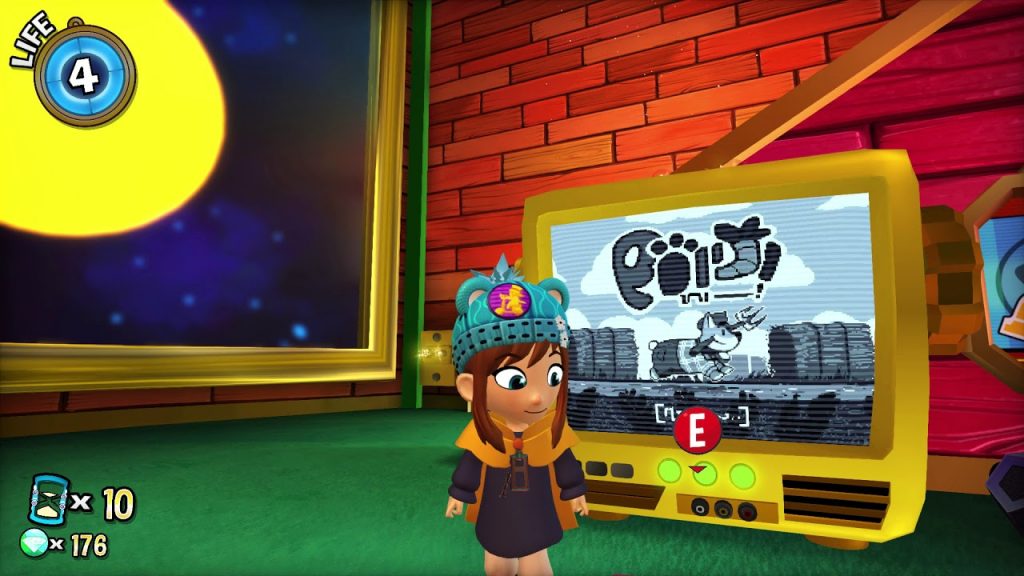
I already provided some thoughts on A Hat in Time, so go read those so you know just how impressive it is that a game with that many faults is ranking pretty damned well on this list.
In the months since I’ve played A Hat in Time, I still remember it, think about it, smile at it. The only reason I haven’t gone back to replay it and find some collectibles I missed is that there are new levels coming in a future update, so I’ll save my second pass for that.
A Hat in Time is just a lovely, charming experience. And while you (and I!) can sit around at pick it apart and shine a light on its flaws, we can’t rob it of its addictive, adorable fun.
It has a lovely visual style (with the hand-drawn static images perfectly capturing a Saturday-morning-cartoon aesthetic), a remarkable soundtrack, and quite possibly the most varied gameplay in any 3D collectathon platformer.
Hat Kid as well is such a well-developed character…not in the sense that there’s much depth or complexity to her, but because absolutely everything about her informs a recognizable and consistent personality. Her animations, her abilities, her design…she’s having a ball in this game, and her enthusiasm is infectious.
There were no shortage of throwback games this year, as this list and many others will attest, but A Hat in Time did the best job of nailing that carefree feeling you used to get from sitting on the carpet and playing a new game long into the night. It doesn’t just take cues for its presentation from those retro masterpieces of your youth…it inherits their spirit.
5) Yoku’s Island Express
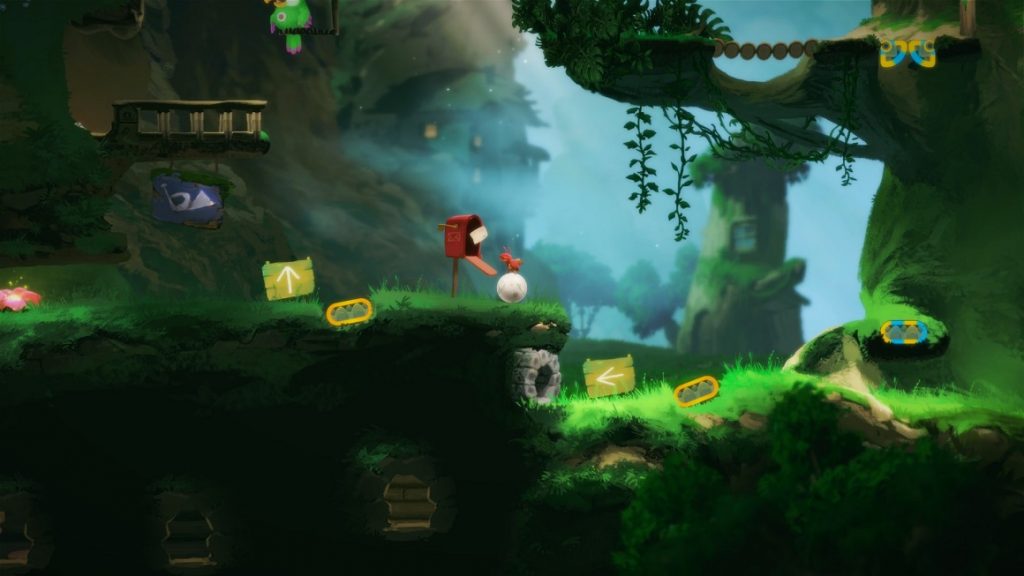
Yoku’s Island Express is a pinball platformer, which is a combination of words that should make any healthy human being cringe. Every review of this game I saw before playing it made some comment along the lines of “this shouldn’t work.” Those reviews were positive, and I assumed that was because Yoku’s Island Express worked well enough for what it was. I never dreamed it would actually work brilliantly.
In the game you take control of a little dung beetle, rolling a big ball of…well, anyway, Yoku ends up becoming a postman, rolling all over (and above, and below) an island to deliver mail. Of course there’s also puzzle solving, combat, exploration, and so on, nearly all of which is handled by playing pinball with little Yoku.
This shouldn’t work.
I love pinball, but I’ve never been very good at it. I suspect most people who love pinball aren’t very good at it. It tests my reactions far more than it tests my ability to think ahead, or my accuracy, and any time I end up with a half-decent score, it’s because luck was on my side.
That’s fine. I can enjoy pinball without knowing what I’m doing. But there’s no way in hell I should be navigating a platformer, a genre reliant on precision, that way. Yoku’s Island Express, though, never becomes frustrating, and the times it gets closest to being frustrating have to do with puzzle solutions, not with pinball sequences.
I’m not entirely sure how it achieves this, but it’s certainly helped by the fact that Yoku never dies; you can always roll your ball back to whatever pinball sequence you’ve failed and try again. And when you’re relying on flippers and bumpers to navigate around the map, they are each carefully positioned to aid your progress rather than hinder it. You get the fun of pinball without the steep demand.
Yoku’s Island Express is a triumph in a way Dead Cells was not; this mix of seemingly incompatible genres feels graceful and correct. Whatever difficulties the developers encountered getting pinball and platforming to work together, they clearly worked hard to identify not just functional but elegant solutions to the problem.
It’s fun, beautiful, charming, and has one hell of lovely soundtrack. It shouldn’t work at all…and yet it’s better than most of the games I’ve played this year.
4) Dragon Quest XI
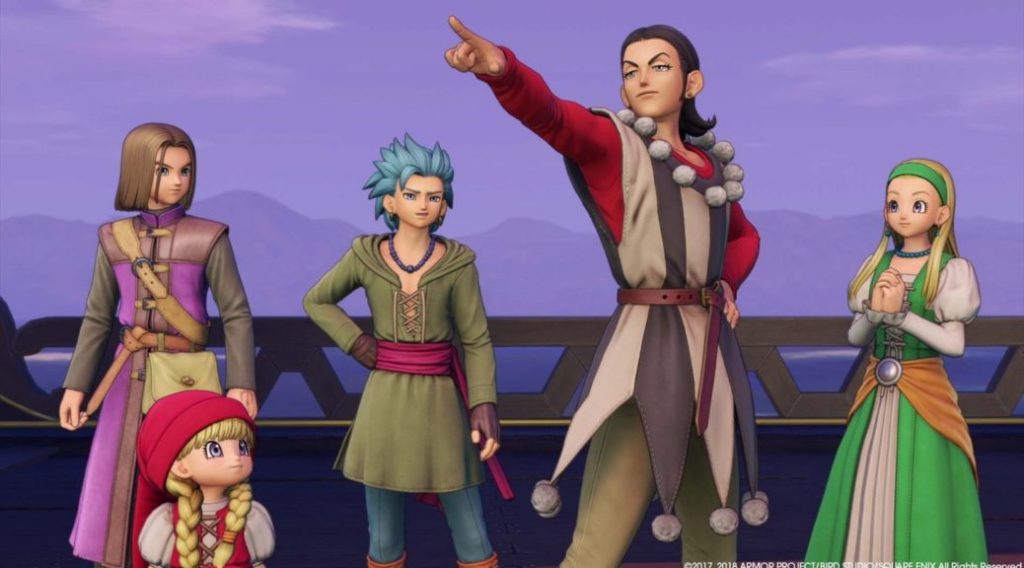
Most of my friends love the Final Fantasy series, and while I can understand why, it never quite grabbed me. Having said that, I did enjoy Final Fantasy IX a hell of a lot, and the little I’ve played (so far) of Final Fantasy X is promising. I hope to get to that one properly in the new year.
But the other games in the series…the older ones, the newer ones, the celebrated ones…they’re fine. I admire them, but I never actually want to play them. (And, to be frank, I had to take a long break from Final Fantasy IX before I worked up the interest to come back to it.)
But Dragon Quest?
Jesus goodness do I love Dragon Quest.
I really can’t explain why this series grabs me in all the ways Final Fantasy doesn’t. Maybe it’s because the cartoony aesthetics are more pleasing to my eye. Maybe it’s because it takes itself just seriously enough not to be ridiculous, but not seriously enough that it won’t stoop low for a good joke. Maybe…it’s just a better series.
I wanted to skip Dragon Quest XI because I knew it would eat up so much of my time, but I couldn’t. I broke down and bought it on release and invested more than 100 hours in it, which is a serious rarity for me. And while it didn’t do much that earlier titles in the series hadn’t already done, it did just about everything perfectly.
I’ve heard other fans describe Dragon Quest XI as comfort food, and I can’t think of a more accurate descriptor. It’s not meant to be dismissive; it’s a chance to have another helping of something you know you love. And, sure, it may not feel all that different from the helpings you’ve had before…but you love it enough that that doesn’t matter.
Dragon Quest XI is a perfectly tuned experience. If you’ve played and enjoyed any of the previous titles, you’ll find yourself in a similar place this time around, but with so many of the rougher edges sanded off.
The one area in which it might flag a bit is the narrative, which is by no means bad but also is nowhere near the kind of story that requires 100 hours to tell. Having said that, it’s something of an achievement that the game stays fun for that long without the strength of narrative to prop it up.
There’s nothing revelatory about Dragon Quest XI. It’s just Dragon Quest in its purest form.
And, honestly, that’s enough.
3) Iconoclasts
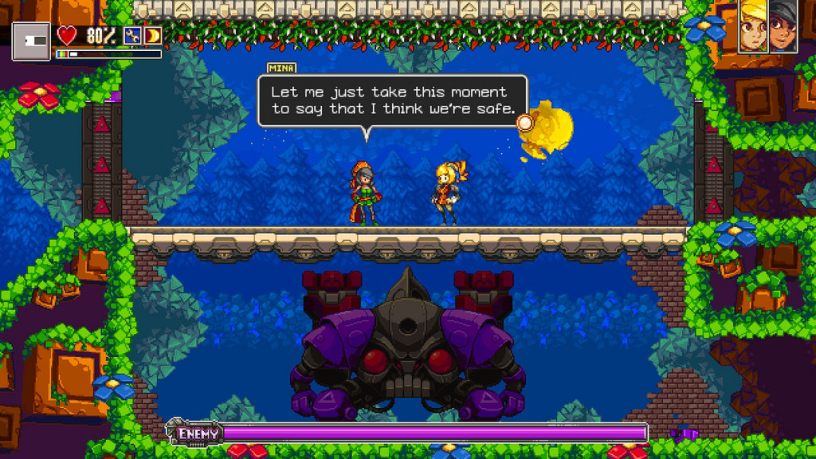
The Game Boy Advance was so perfect for comic book-like graphics, it’s a shame retro-styled games tend to focus on the NES/SNES eras for their visual inspirations. Iconoclasts, deliberately or not, reminded me in all the right ways of the GBA’s particular brand of presentation, and I couldn’t help but pick it up.
I’m glad I did, because far from being the sunny throwback I expected, and admittedly would have been just fine with, Iconoclasts was downright revelatory. It’s a fairly simple 2D platformer that managed to weave a better, more affecting story than most RPGs I’ve played. It’s a brilliant tale told as simply and quietly as possible, which only makes it more powerful, and it has a downright unprecedented skill with characterization that I don’t believe any other platformer has topped. It’s an achievement for the genre, and one of the most impressive I’ve seen.
You are Robin, a working-class mechanic living under the oppressive regime of something called The One Concern. The adorable blonde collection of pixels seems as though it belongs in a much happier game, living a much more carefree life, fighting a far less threatening force. But Robin didn’t choose to be here. Nobody did.
Throughout the adventure, you meet and team up with other characters, all of whom, potentially, have a lot to offer your budding rebellion. None of them live up to their own potential, giving the narrative, at times, a very effective feeling of hopelessness, even as you make progress. It’s nice to have these characters along, because it prevents you from feeling alone. But it’s easy to see that when you’re fighting an organized, established, well-armed oppressor, the actual strength you gain in numbers is negligible.
That’s not to say the game is all that difficult. Most of the trickiest bits are puzzle-centric, and the penalty for failure is, at worst, starting a room over again. But the narrative sells the danger, the stakes, the urgency of doing, somehow, what you know you’re not equipped to do.
With minimal dialogue, simple character design, and backstory parceled out just enough that you have some sense of what’s happening, Iconoclasts manages to build a a remarkably rounded and realistic set of characters.
I came to know these people. I understood them. Even when they did something I wished they wouldn’t do, I understood why they did it. Toward the end of the game a certain character behaves in a certain way that should have frustrated me, except that it was so perfectly earned that I instead had to admire the way Iconoclasts built to that frustrating and yet fully understandable moment.
The soundtrack is fantastic, the pixel art gorgeous, and the gameplay rewarding. On top of all of that, Iconoclasts manages to be genuinely funny at times while always taking itself seriously. Dead Cells had to resort to winking at the audience. Iconoclasts finds moments of levity in the world it actually occupies. One of those approaches is infinitely more rewarding than the other.
2) Hollow Knight
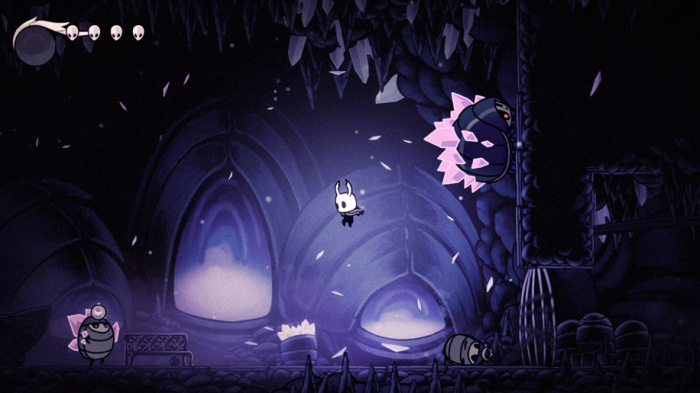
I have a weakness for simple games. Games that understand what they’re doing, do it well, and keep it interesting. Nintendo has long been the reigning champion of this kind of game, turning Mario’s jump, for instance, into something that stays interesting across dozens of levels in dozens of games.
Hollow Knight understands how to keep simplicity interesting as well as Nintendo ever has, and it also adds layers of optional complexity that keep you learning all the way through the experience.
Hollow Knight is about a fallen civilization of insects. You play a cute little greyscale bug that wields a nail like a sword. So far, so adorable. But its gorgeous hand-drawn style aside, this isn’t a cartoon world. This is a dead world full of dying characters. The atmosphere is sombre and morose. You’ll find a new toy that you’re excited to play with and it will ultimately, unavoidably, lead you to new reminders that this universe has more of a past than it has a future.
Moments of levity only serve to remind you how much was lost. An elderly stag beetle with aching joints ferries you back and forth across the map, reflecting on what once was. A brave adventurer you meet early in your journey is a corpse you find much later. A cute little pillbug mines away, singing a happy tune…succumbing slowly to madness…eventually no different from any other enemy. You slay her. It’s a mercy.
Hollow Knight manages to weave a story of remarkable — but usually only suggested — depth. It keeps you on its own narrative surface. You can learn more about who you are, about what happened, about why your journey matters, but only if you look for it and almost never will you get a straight answer.
It’s a massive game that repeatedly feels like it’s ending only to open up again and again into new territory, and it never once feels like it’s dragging. It’s full of fantastically designed boss fights and surprisingly sympathetic characters.
Hollow Knight, without any question whatsoever, the best metroidvania I’ve ever played.
1) Celeste
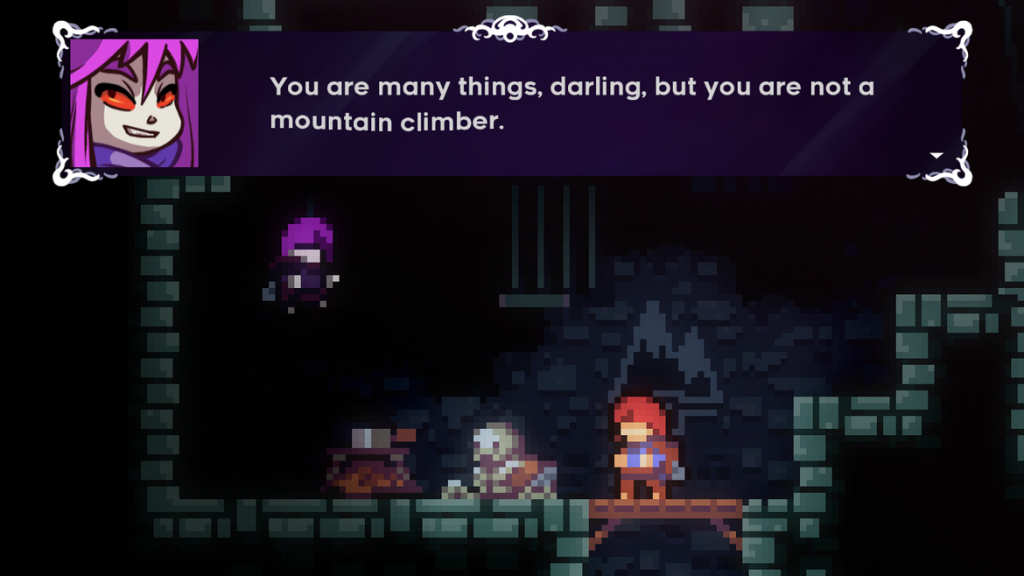
As much as I love Hollow Knight, there was no doubt in my mind that Celeste would take my top spot. I hope you realize just how much that says in itself.
Celeste is a brutally hard screen-by-screen platformer in the tradition of Super Meat Boy, but where that game (and just about every other one that took inspiration from it) relished the opportunity to beat you down, Celeste works very hard to lift you up.
It isn’t easy. It starts off difficult and gets harder every single time you think you’ve gotten the hang of it. But it actively encourages you to keep going. It speaks reassuring things to you in its loading screens. It reminds you openly that optional pickups and levels are, indeed, optional. It encourages you to push through even when it feels impossible…even when you’re sure it’s impossible…
…which, beautifully, is also the game’s story. We play as Madeline, a young girl determined to scale a difficult mountain. Celeste is that mountain, and Celeste is the game in which you scale it. It’s Madeline’s struggle that becomes yours. You work together to accomplish a singular goal from opposite sides of a screen. And the frustration you’ll feel throughout the game is Madeline’s frustration as well. It’s a game that connects you directly, emotionally, with the character you play.
Madeline is hounded by anxiety, by depression, by crippling self-doubt. Like last year’s big surprise, Hellblade: Senua’s Sacrifice, Celeste is a game about mental illness. But whereas Hellblade placed you in Senua’s mind — hearing and seeing and pushing through her various hallucinations — Celeste is external. We see her the way anybody else would see her…not as the nervous failure she believes she is, but as an innocent girl dangerously unprepared for what she’s facing. The more time we spend with her, the more we understand what’s happening in her mind. Why this foolish excursion is so important to her. Why she refuses to be satisfied with anything she’s accomplished, always bracing herself against whatever comes next.
I never finished Super Meat Boy, though I genuinely loved it. At some point it got too difficult for me, and had I kept trying I would have eventually succeeded. But I didn’t keep trying. I had my fun, and seeing it through to the end didn’t matter. That game joked about the irrelevance of its own story, and that was part of the fun.
Celeste takes itself, and its heroine, and its subject matter, seriously. And I did finish it. This game got too difficult for me, too…but by the time it did, I knew Madeline. And I couldn’t leave her shivering in the snow, reflecting not on how far she’d come but on how much she’d never overcome in the future.
I helped her overcome. It was important to do so. She needed someone. Playing Celeste, you get to be her someone. And the feeling of satisfaction you get when you do help her…
Well, you helped a friend. For now, at least, you gave her a reason to believe in herself. And that’s not something either of you are likely to forget.
What were your favorites of the year? Let me know what I missed!
